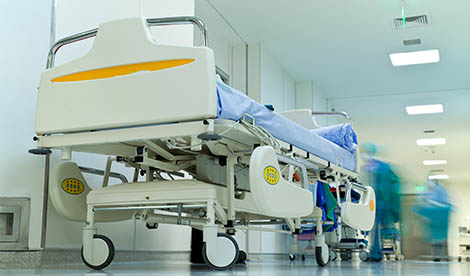

News

PM’s Urgent Care Clinics won’t address record downward trend for WA hospital system
Wednesday February 1, 2023
With January completed, Western Australia has just surpassed another unwanted record, with the worst ever ambulance ramping for that month.
At more than 4,700 ramped hours, it’s a 26 per cent increase on the figures from January 2022.
The end of January also provided us with analysis from the Federal AMA that indicated that seven of the eight worst performing hospitals in Australia for Category 3 (urgent) emergency department presentations were from WA.
Of the 26 hospitals analysed in WA, none of them met all the clinically recommended timeframes.
Elective surgery waitlists have gone up by 80 per cent compared to a year ago.
In the face of this tidal wave of poor outcomes for the WA health system, the Federal Government today announced expressions of interest for seven Urgent Care Clinics in the State: in Perth, Joondalup, Rockingham, Murdoch, Midland, Bunbury and Broome.
Prime Minister Anthony Albanese said the measure was designed to take the pressure off emergency departments.
However, AMA (WA) President Dr Mark Duncan-Smith said we have already had similar trials with GP super clinics and St John’s care clinics that failed to have any impact on emergency department outcomes.
“The walking wounded patients that these clinics would see are fast tracked through EDs and therefore do not occupy beds, do not cause access block and do not cause ramping,” he said.
“The unintended consequences of these urgent care clinics could paradoxically see the closure of some general practices nearby these locations.
“We are encouraged that the Federal and State Governments are communicating closely but it is concerning that the current urgent care clinic policy was conceived without consultation with the AMA or other major stakeholders.”
Dr Duncan-Smith said the State Government’s own Budget media release had advised the spend on non-COVID health was going up by 3 per cent, which is less than CPI.
“Non-COVID health spend represents hospital capacity and the ability to do elective surgery,” he said.
“The opening of 100 new modular beds and reopening 400 beds that should never have been closed seven years ago is not enough to adequately increase the capacity of the system.
“We call on the McGowan Government to develop a coherent, collaborative and comprehensive plan to turn around the health system.
“At a minimum, this should include a rethink of health investment in WA and adopting a policy to reach the national average of hospital beds per head of population.
“If the McGowan Government is spending enough on health, and in the right places, why is WA setting all these undesirable health records?”

